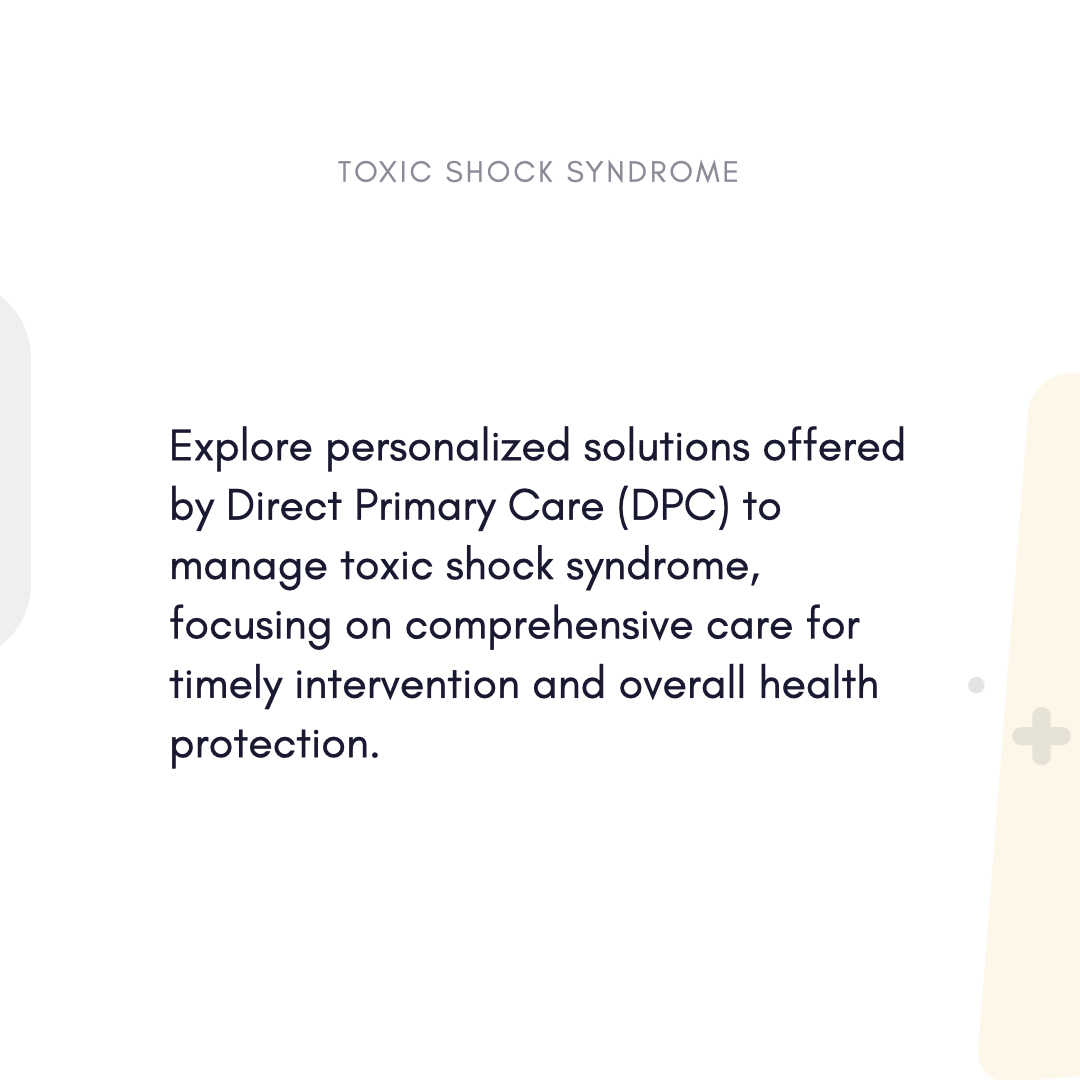Toxic Shock Syndrome and Direct Primary Care (DPC): Rapid Response for a Life-Threatening Emergency
You know the horror of Toxic Shock Syndrome (TSS) if you have ever had unexpected high fever, a sunburn-like rash, or vertigo following tampon use. Affecting 1 in 100,000 persons, this rare but fatal disorder has a 50% mortality rate if untreated. Direct Primary Care (DPC) provides a front-line defense against TSS, though, combining fast triage, cost transparency, and coordinated care to save lives.

Knowing TSS and Its Critical Need
Bacterial toxins (Staph/Strep) cause TSS and manifest as:
- Fever more than 102°F, hypotension, rash.
- Kidneys, liver, lungs—many organs failing.
High-risk circumstances:
- Menstrual: Constant tampon use.
- Skin infections, burns, or post-surgical.
Treatment has to start in hours if death is to be avoided.
How DPC Changes TSS Maintenance
Under the membership model known as Direct Primary Care (DPC), patients pay a monthly fee—usually 50 USD–150 USD—for unlimited access to their main care physician. This means for TSS patients no ER delays, no surprise bills, and treatment emphasizing quick, life-saving action.
Here's why DPC distinguishes itself:
1. Quick, 24/7 Triage
Using CDC and IDSA recommendations, DPC doctors adhere to:
- Same-day telehealth visits for fever plus a rash help with symptom recognition.
- Direct ambulance rides to ICUs constitute emergency coordination.
- Source control: On route, remove draining abscesses or tampons.
2. Reasonably priced post-crisis management
- By negotiating hospital cash rates for IVG (1,000 USD vs. 5,000 USD+) DPC clinics help to lower long-term costs.
- Antibacterial stewardship and post-discharge wound care.
- Providing PTSD post-recovery psychological assistance.
3. Preventive Instruction:
Patients with continuous DPC access can:
- Learn TSS prevention: Tampon hygiene, menstrual cup safety.
- Deal with recurrent infections—that is, chronic Staph carriers.
- Get vaccinated (for Strep pneumoniae among other things) to lower risk.
DPC's advantages for TSS patients include life-saving speed.
- Same-hour visits: DPC doctors identify red flags ahead of ER triage.
- Skipping waiting rooms for quick ICU admission is direct ER coordination.
Savings on Cost
- No co-pays for expeditious telehealth visits.
- Following up post-TSS at 50% less than standard treatment.
- Prevention of expensive complications by early intervention.
Overall Support for Recovery
DPC targets:
- Monitoring organ damage: tests of kidney/liver performance.
- Probiotics taken after antibiotics help immunity.
- Mental health: trauma counseling stemming from almost death experience.
Personal Success Stories from Real Life
- Case 1: Emma, 24, saved 15,000 USD in ER delays by surviving TSS when her DPC doctor ordered an immediate ambulance transfer.
- Case 2: John, 35, avoided chronic Staph colonization by DPC-prescribed mupirocin avoiding repeated TSS.
FAQs: TSS and DPC
- Q: Can DPC manage acute TSS?
- A: Crucially during the golden hours, DPC starts emergency treatment and arranges ICU transfers.
- Q: Is DPC reasonable after recovery?
- A: Yes. On specialist follow-ups and lab tests, members save 30–50%.
- Q: If I require long-term dialysis, what then?
- A: A DPC works with nephrologists on cash-pay dialysis packages.
Why DPC Works for TSS Patients?
Early identification is stressed by the CDC to reduce TSS mortality. DPC presents this via:
- Teaching consumers: spotting early symptoms (rash plus fever).
- Delaying delays: Avoiding ER traffic congestion.
- Cost simplification: One monthly cost addresses follow-up and prevention.
Use DPC to survive and thrive.
One does not have to consider toxic shock syndrome to be death sentence. With DPC, you find a partner who acts forcefully, organizes effortlessly, and gives your survival top priority—every second, every action toward recovery.






